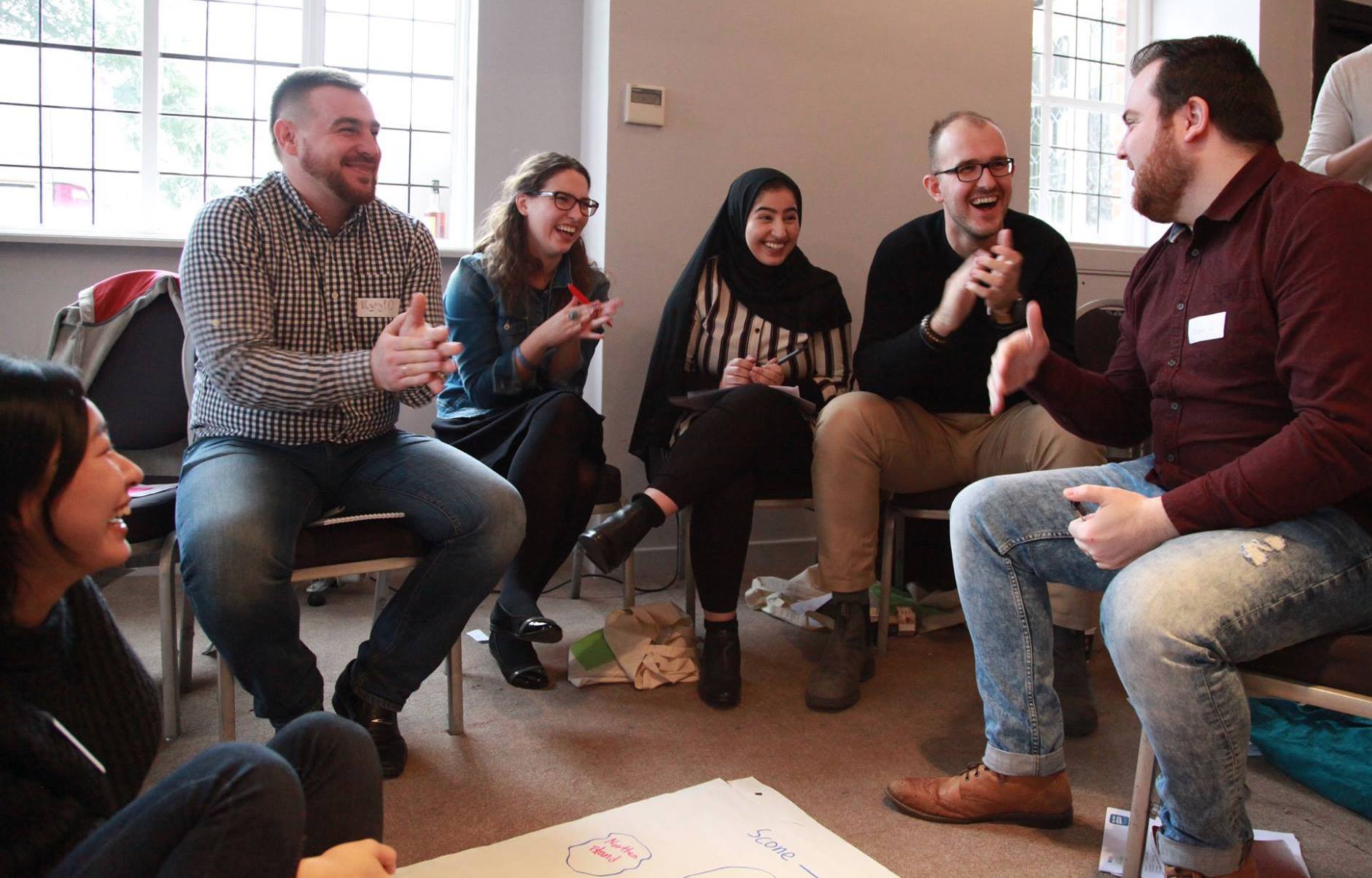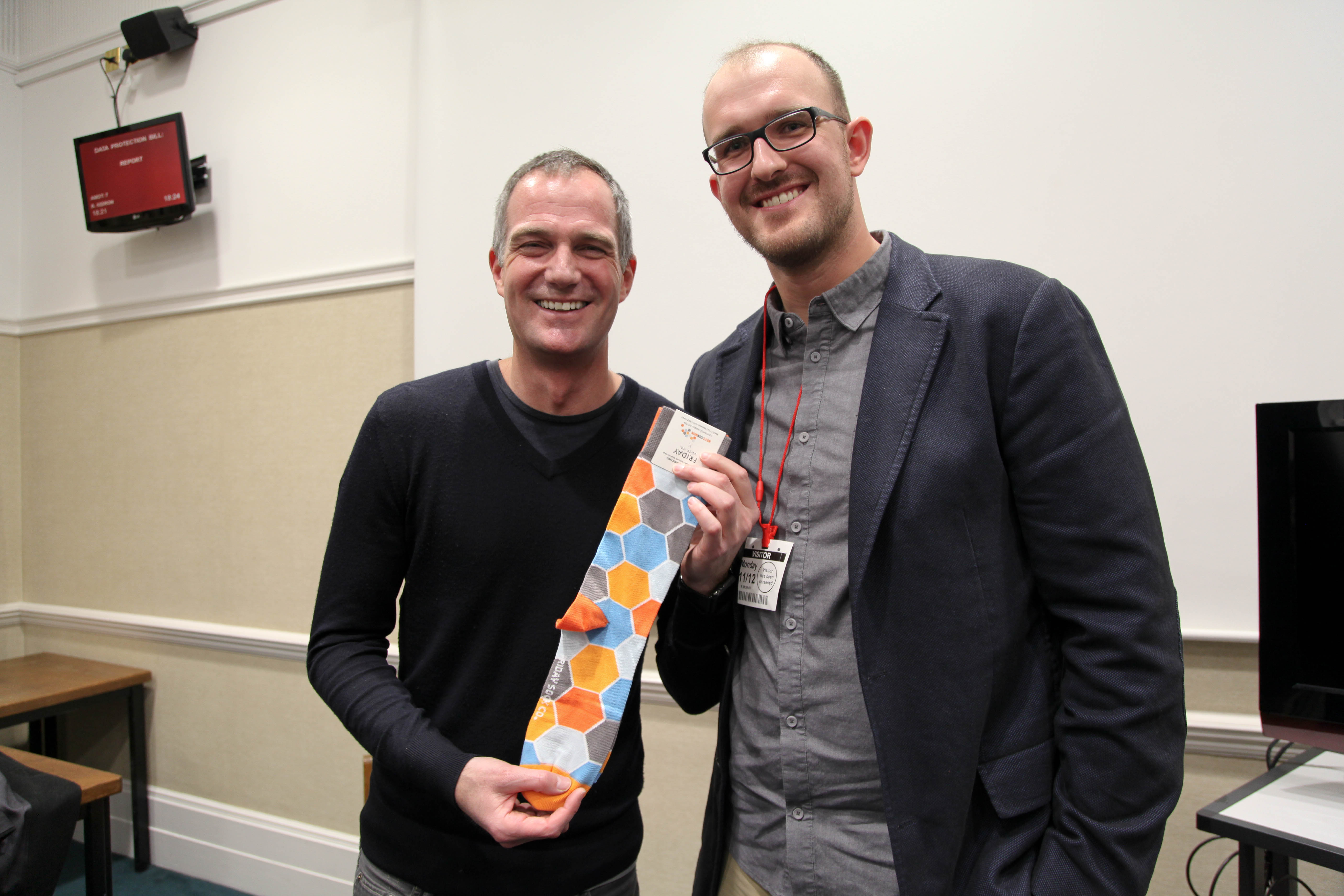The social enterprise that's redesigning masculinity
Canadian social enterprise, Next Gen Men, works in classrooms and boardrooms to “build better men”. Pioneers Post talks to its founder Jake Stika.
The Harvey Weinstein allegations, and the #MeToo movement arising in its wake, have forced people to confront the toxic attitudes some men have towards women.
One person determined to do something about it is Canadian social entrepreneur Jake Stika, whose work helps young men understand and navigate the world they are growing up in.
“Five years ago, if you’d asked me if I’d be running a gender-based organisation, I’d have been like, You’re crazy,” says Jake, a towering former semi-pro basketball player and self-confessed college jock.
But Jake is now executive director of Next Gen Men, a social enterprise he established with two friends in 2015, which takes gender-based learning programmes into Canada’s schools, pubs and businesses. It describes its aim as being focused on “building better men through youth and peer engagement, education and empowerment”.
The programmes are designed to give boys and men the space and time to think differently about their place in the world, at a time when the prevailing culture encourages them to win at all costs and simply to ‘man up’ if things go wrong. This sort of culture is deeply damaging, Jake says. “These are very toxic things to place on a young man.”
Long before you turn to talking about sex, young men need to be able to talk about “the mental, emotional, relational components of having a relationship,”
The schools programme works directly with teenage boys and tries to fill some of the gaps in existing sex education. Long before you turn to talking about sex, young men need to be able to talk about “the mental, emotional, relational components of having a relationship,” Jake explains. Without this openness about relationships, he believes, toxic attitudes will continue to fester.
Jake is one of dozens of social entrepreneurs and community activists from nine different countries who joined a week-long British Council International Study Visit (ISV) in London in December, under its Active Citizens programme. ISVs are a chance for people from across the world to share skills, knowledge and ideas that they can then take back to their own communities and plan for the future.

Dozens of social entrepreneurs and community activists from nine different countries joined a week-long British Council International Study Visit in London in December, under its Active Citizens programme
The participants had their headquarters on the tranquil De Vere Seldsdon Estate in Croydon, although the week also saw participants split off in groups to work with community leaders in other parts of the country.
Jake’s main reflection on the ISV is typically practical. Canadian law-makers lag behind their British counterparts on gender legislation, he observes, even if Canadian society as a whole is more progressive. He would like to see some of the policies in place in Britain – on public bodies reporting the gender balance of their staff, for example, and regular reviews of the gender wage-gap – introduced in north America.
Jake estimates that his team has reached about 600 school students, and hundreds more through the pub programme and another scheme just starting in the private sector. He is optimistic about the progress so far of this initiative, underway at a tech company to help senior staff better understand gender relations at the company.
“We meet men where they are at,” Jake explains, describing plans for 2018 to introduce programme in men’s locker-rooms at universities and sports clubs. Given that sports coaches command such respect from men in their teens and earlytwenties, Jake wants to work with coaches as much as the players, and help them “take that opportunity to build better men, not just better athletes” It is an ambitious move, one where Jake’s own sports background will no doubt help. If anyone can command respect in a locker room, it will be him.

Jake Stika presented Dr Peter Kyle MP with a gift from a Canadian social enterprise during a meeting in Parliament between Dr Kyle and an international delegation of Active Citizens. Photo: Helen Clifton
A growing Canadian social enterprise movement
Jake’s success is part of a growing social enterprise movement in Canada.
Mariya Afzal, the country director for British Council Canada, hails the “massive increase in interest in the sector” over the last decade. There has been help from the Canadian government, she says, which has taken “steps forward” to build the essential networks needed to support social enterprises to work together, although social enterprises still lack a formal legal status.
The Active Citizens programme for Canada has worked in eight cities so far, according to Mariya, training 329 leaders over two phases. “I hope this is just the beginning for us,” she says.
This is a small chunk of the 210,000 people in total who have been part of Active Citizens so far, a number quoted proudly by the British Council’s Michael Unwin.
“There are lots of people that are seeing things that are wrong or things that they would like to change,” Unwin says. “They might have the motivation to do so but they may not have the tools and knowledge and skills needed to do that.”
This is where Active Citizens is so valuable, he adds, by providing both the confidence and some of the practical tools needed to “tackle problems through social action”. In Jake’s case, that means founding a social enterprise which could provide something sorely lacking when he was growing up, and which is now as important as ever. No one showed Jake and his peers “what it meant to be good men,” he says, something he is out to fix.
Header photo: Next Gen Men’s programmes are designed to give boys and men the space and time to think differently about their place in the world, at a time when the prevailing culture encourages them to win at all costs and simply to ‘man up’ if things go wrong
On 12 March, The British Council Canada, the United Nations Association in Canada and the British High Commission are jointly hosting the 2018 Youth Innovation Summit on Parliament Hill in Ottawa that will feature 15 Active Citizens from Canada. This is a public event and if you’d like to attend, please register your interest here.



